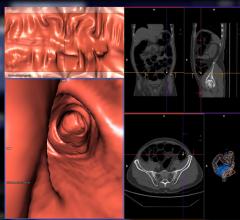July 23, 2012 — The U.S. Food and Drug Administration (FDA) granted Ferring Pharmaceuticals Inc. approval to market Prepopik (sodium picosulfate, magnesium oxide and anhydrous citric acid) for oral solution indicated for cleansing of the colon as a preparation for colonoscopy in adults. Prepopik is a low-volume, orange-flavored, dual acting, stimulant and osmotic laxative.
The FDA approval is based on data from two pivotal Phase III non-inferiority studies in which Prepopik was compared to 2L PEG+E plus 2x 5-mg bisacodyl tablets. In both studies, Prepopik achieved the primary endpoint (successful colon cleansing based on the Aronchick scale), demonstrating non-inferiority to the comparator (Study 1: 84.2% v. 74.4%; Study 2: 83.0% v. 79.7%). Additionally, Prepopik demonstrated statistical superiority in cleansing of the colon versus the comparator.
The most common (>1%) adverse reactions in Study 1 possibly or probably related to Prepopik (n=305) versus the study comparator (n=298) were nausea (2.6% v. 3.7%), headache (1.6% v. 1.7%) and vomiting (1.0% v. 3.4%). The most common (>1%) adverse reactions in Study 2 possibly or probably related to Prepopik (n=296) versus the comparator (n=302) were nausea (3.0% v. 4.3%), headache (2.7% v. 1.7%) and vomiting (1.4% v. 2.0%).
Once commercially available, Prepopik will be the lowest volume active ingredient colon preparation available – with 10 ounces of prep solution.
Colon cancer is the third most common cancer and second leading cause of cancer death in the United States. Colonoscopies have been shown to help reduce the incidence of colon cancer and deaths associated with the disease. Complete visualization of the bowel is needed to conduct a thorough colonoscopy to identify precancerous lesions and diagnose other gastrointestinal disorders. Aversion to bowel prep solutions, including the substantial liquid volume, has been recognized as a key barrier to completion of essential colonoscopy prep regimens.
"Successful bowel prep is critical for gastroenterologists to clearly see any polyps or abnormalities, yet the sheer volume of prep solutions can prevent patients from adequately completing their prep regimens, leading to suboptimal visualization of the colon," said Douglas K. Rex, director of endoscopy at Indiana University Hospital and professor in the division of gastroenterology and hepatology at University of Indiana School of Medicine.
Prepopik is approved with two dosing options. Preferably, it can be given as the American College of Gastroenterology (ACG)-recommended split-dose taken in the evening before and on the morning of the procedure. Recommended by the ACG as the optimal way to prepare for colonoscopy, split-dosing has been shown to improve cleansing quality given its greater proximity to procedure time, and appears to have higher compliance due to better tolerability of the liquid volume. Day-before dosing is an alternative regimen for patients for whom split-dosing is inappropriate, accounting for colonoscopy scheduling, distance traveled and other personal circumstances.
"Ferring has a strong global GI presence and with this approval, we are very pleased to introduce Prepopik as our first gastroenterology product in the United States," said Aaron Graff, president and chief operating officer, Ferring Pharmaceuticals Inc. "Colonoscopy rates are lower than the target set forth by public health initiatives to detect and prevent colorectal cancer. Adults who have avoided getting screened may benefit from this effective regimen with the lowest active ingredient volume of any FDA-approved bowel prep."
For more information: www.prepopik.com


 February 06, 2024
February 06, 2024 









